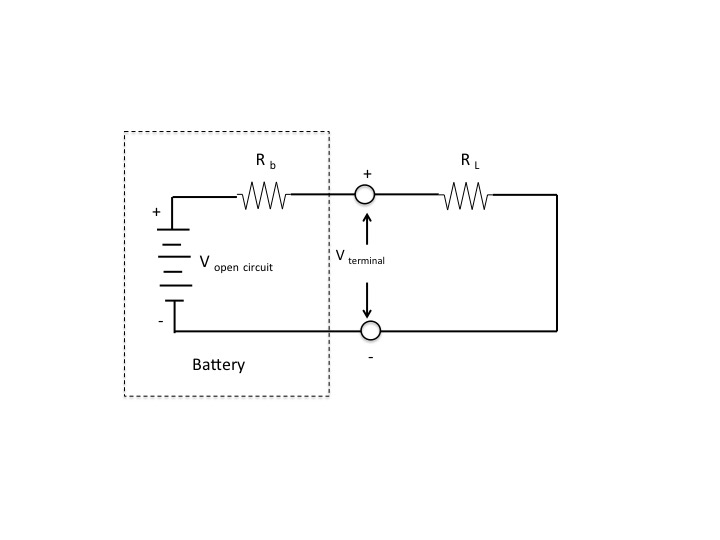An answer from the post "Battery life with hot and cold wires" talks about Peukert's law related to the battery capacity. Now, within the scope of undergrad electromagnetism courses, the following are two common scenarios:
Case 1 : A circuit with only a battery and a resistor.
Case 2 : A circuit with a battery, a resistor and a capacitor.
However, it seems like in none of those cases Peukert's law is taken into account. Furthermore, books always say that voltage is constant and that if you know the resistance, then you can apply (the macroscopic version of) Ohm's law $V=IR$.
For case 1, the power $P=VI$ , so a beginner might believe that a battery keeps giving energy away forever.
For Case 2, one is supposed to use $I(t)=\frac{V_0}{R}e^{\frac{-t}{RC}}$ and assume that $V_0$ is constant.
Questions:
- Peukert's law talks about current. But what about voltage? Does voltage in a battery also decrease in the presence of a resistor?
- Is everybody supposed to ignore Peukert's law when doing undergrad electromagnetism ?

